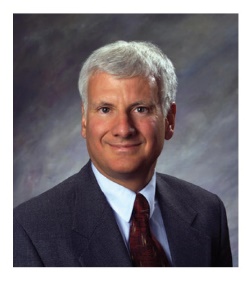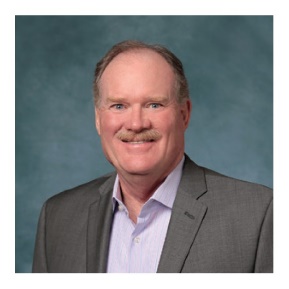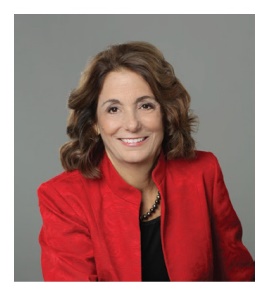Open letters to Trump from IMCJ's integrative/functional medicine group
March 9, 2017
by John Weeks, Publisher/Editor of The Integrator Blog News and Reports
 Pizzorno, pictured, opened a theme that others take up related to the determinants of health. His lead-in concludes with a strong free-market pitch. “Government, at all levels, has supported competition-preventing regulations and crony capitalism,” he wrote. Pizzorno provides a five-point plan presented here in full:
Pizzorno, pictured, opened a theme that others take up related to the determinants of health. His lead-in concludes with a strong free-market pitch. “Government, at all levels, has supported competition-preventing regulations and crony capitalism,” he wrote. Pizzorno provides a five-point plan presented here in full: - A broader definition of "public health" that includes such critical concepts as helping and supporting farmers to grow foods with higher nutrient density and working with industry to decrease the presence of disease-inducing metal and chemical toxins in the air, water, food, packaging materials, health and beauty aids, home and yard chemicals, etc.
- Primary care that addresses the true causes of disease rather than simply short-term relief of symptoms.
- Personalized health promotion rather than generic care for disease.
- A reimbursement and regulatory system that prioritizes health promotion and disease prevention rather than expensive drugs and procedures.
- Creation of a presidential commission—composed of change agents rather than vested interests—to provide the U.S. Congress with guidance for creation of a real healthcare.
 Bland, considered the “Father of Functional Medicine,” began his letter by citing an Economist article published shortly after Trump was elected. It offered evidence that “a significant health challenge lies ahead for the Trump regime,” writes Bland, “because the Republican constituency that supported Trump has the poorest health.” He cites another author’s list of five recommendations that includes judicious use of the personalized care in which Bland is an expert. Others include a wellness perspective. The last is boots-on-ground practical. “Monitor outcomes from a value-based perspective to create continuous improvement,” he wrote. Bland discussed the evidence that U.S. medicine fails to address the actual determinants of health. He concludes with a plan that begins with the need to prioritize health and wellness. “We see the development of a successful wellness industry that attracts the best and the brightest innovators," he wrote at the end of the article.
Bland, considered the “Father of Functional Medicine,” began his letter by citing an Economist article published shortly after Trump was elected. It offered evidence that “a significant health challenge lies ahead for the Trump regime,” writes Bland, “because the Republican constituency that supported Trump has the poorest health.” He cites another author’s list of five recommendations that includes judicious use of the personalized care in which Bland is an expert. Others include a wellness perspective. The last is boots-on-ground practical. “Monitor outcomes from a value-based perspective to create continuous improvement,” he wrote. Bland discussed the evidence that U.S. medicine fails to address the actual determinants of health. He concludes with a plan that begins with the need to prioritize health and wellness. “We see the development of a successful wellness industry that attracts the best and the brightest innovators," he wrote at the end of the article.  Guarneri, the founding president of the Academy of Integrative Health and Medicine (AIHM), said she seeks to engage Trump on the shadow side of her triumphs as an interventional cardiologist. “How can we be as good at prevention as we are at intervention?” she asked. What is missing from the current model, she wrote, “is disease prevention and its elimination or management through holistic approaches to the underlying causes including diet, reaction to stress, and exercise.” Guarneri pitched the importance of interprofessional team and ticks off as half-dozen under-utilized traditions, from Ayurveda to naturopathic medicine that can support this effort. She gave a special shout out to “integrative health and medicine, a new board-certified health care specialty through American Board of Physician Specialties, [that] is uniquely poised to offer a solution to our current epidemic of chronic disease.” Guarneri offered, on behalf of AIHM, a strategy to take on healthcare as an economic strategy. “The creation of a White House Commission to focus on enhancing the health of our nation, disease prevention, and new models of treating chronic disease is a critical first step to enhance the well-being of our nation and to reverse our current overwhelming health care expenditure," she concluded.
Guarneri, the founding president of the Academy of Integrative Health and Medicine (AIHM), said she seeks to engage Trump on the shadow side of her triumphs as an interventional cardiologist. “How can we be as good at prevention as we are at intervention?” she asked. What is missing from the current model, she wrote, “is disease prevention and its elimination or management through holistic approaches to the underlying causes including diet, reaction to stress, and exercise.” Guarneri pitched the importance of interprofessional team and ticks off as half-dozen under-utilized traditions, from Ayurveda to naturopathic medicine that can support this effort. She gave a special shout out to “integrative health and medicine, a new board-certified health care specialty through American Board of Physician Specialties, [that] is uniquely poised to offer a solution to our current epidemic of chronic disease.” Guarneri offered, on behalf of AIHM, a strategy to take on healthcare as an economic strategy. “The creation of a White House Commission to focus on enhancing the health of our nation, disease prevention, and new models of treating chronic disease is a critical first step to enhance the well-being of our nation and to reverse our current overwhelming health care expenditure," she concluded.  Westreich offered Trump basic education, from a consumer’s perspective. High costs, poor outcomes—the U.S. doesn’t have a healthcare system but a “medical industry.” Westreich told Trump that she’d like to bring in a group of integrative and functional medicine leaders to speak with him. “The most important thing you can do while you are president is fix our broken system of ‘disease care," she wrote. Then she provided a brief ecological lesson. “Our bodies are the most complex system known to humankind, but they only thrive in concert with the rest of our planet if the entire complex ecosystem is similarly thriving,” she wrote. Westreich concluded by echoing Trump’s promise to his electorate: “If we don’t make an effort to turn the health of our population around, we will not be a superpower," she wrote "I urge you to make American great again.” Comment: Over 15 years ago, colleagues and I sat in a Congressional meeting room for the House Oversight Committee in a day-long session facilitated by futurist Clem Bezold. We ended up creating something we refer to as the Design Principle for Healthcare Renewal. There remains much in those 10 sentiments that is echoed here, and that could benefit Trump, if he had ears to hear. The theme of addressing the determinant, and Bland’s call, particularly, echos Principle 9: “Align resource investment with these healthcare principles … The renewed healthcare system is a partnership between an expanded commitment to the public health and a thriving industry of health creation.” Credit Pizzorno and his co-authors for these contributions. Pizzorno shared that Innovision is backing a plan to get the content to members of Congress. At least two of these authors likely have some access to their core audience, President Trump. As I write, a rather different unleashing of the medical industry appears to be unfolding via the Trump-based Republican plan. For those interested, the set of letters and their authors are here:
Westreich offered Trump basic education, from a consumer’s perspective. High costs, poor outcomes—the U.S. doesn’t have a healthcare system but a “medical industry.” Westreich told Trump that she’d like to bring in a group of integrative and functional medicine leaders to speak with him. “The most important thing you can do while you are president is fix our broken system of ‘disease care," she wrote. Then she provided a brief ecological lesson. “Our bodies are the most complex system known to humankind, but they only thrive in concert with the rest of our planet if the entire complex ecosystem is similarly thriving,” she wrote. Westreich concluded by echoing Trump’s promise to his electorate: “If we don’t make an effort to turn the health of our population around, we will not be a superpower," she wrote "I urge you to make American great again.” Comment: Over 15 years ago, colleagues and I sat in a Congressional meeting room for the House Oversight Committee in a day-long session facilitated by futurist Clem Bezold. We ended up creating something we refer to as the Design Principle for Healthcare Renewal. There remains much in those 10 sentiments that is echoed here, and that could benefit Trump, if he had ears to hear. The theme of addressing the determinant, and Bland’s call, particularly, echos Principle 9: “Align resource investment with these healthcare principles … The renewed healthcare system is a partnership between an expanded commitment to the public health and a thriving industry of health creation.” Credit Pizzorno and his co-authors for these contributions. Pizzorno shared that Innovision is backing a plan to get the content to members of Congress. At least two of these authors likely have some access to their core audience, President Trump. As I write, a rather different unleashing of the medical industry appears to be unfolding via the Trump-based Republican plan. For those interested, the set of letters and their authors are here: - Pizzorno: How to Cure the Sick Health Care System: An Open Letter to President Trump from Leaders in Functional/Integrative/Natural Health and Medicine
- Bland: Creating Health in America, One Person at a Time: A Message for Incoming President Trump
- Guarneri: Health as an Economic Strategy
- Pizzorno/Stephenson: Health Care System and Addressing the Determinants of Health
- Westreich: Personal Responsibility and Consumer Engagement




















SHARE